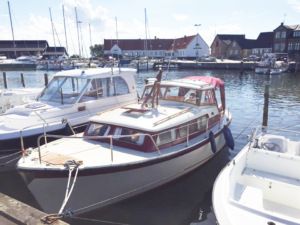Opinion
Living in an Expat World: Breaking through the hard shell of the Danes
Tiny Maerschalk
This article is more than 8 years old.

Together we moored, but don’t come aboard (photo: Alex Hannibalsen)
People often refer to Danes being reserved, closed off and difficult to make friends with. But this summer I had a very different experience – to my surprise I have to admit.
Chatty Danes everywhere!
I too have struggled to get through the tough Danish shell. Sometimes it feels like trying to crack a coconut. You try and keep on trying, without getting through. However, after countless attempts, all of a sudden you do get through.
Sailing in the southern Jutland and South Funen archipelago, I encountered numerous Danes happy to engage in conversation. Our summer holidays took us from Sønderborg to Dyvig, Lyø, Avernakø, Faaborg, Ærøskøbing, Marstal and Rudkøbing – and we met chatty Danes everywhere!
Just don’t board my boat!
Still the dialogue took place at playgrounds and quays – not on each other’s boats! Only the kids got to go aboard and show each other their cabins. As the boat is one’s home for the holidays, I still had this feeling of not being invited into a Danish home.
On two occasions our eldest daughter found a great playmate and there was a common agreement to sail the same way to give the girls the opportunity to continue playing together in the next harbour.
In the evening each crew brought their own food and drinks to a picnic table on the quay to have dinner together. In the Danish spirit of hygge, each crew also brought something to share – usually a beer – and the dads bought ice cream for all of the kids.
Sharing a hobby helps
Now the question is why was it so easy to interact with the Danes. Was it because it was a holiday and everybody was relaxed? Or because our kids were interacting with their kids? Or because we share the same spare-time interest?
Well, it was probably a mix of different factors. My experience has taught me that sharing an interest or hobby certainly helps, and signing up for a spare-time activity is probably the fastest way to get into a Danish network.
Danish friends for life
All of these encounters were dialogues on the spot: friendly conversation, sharing sailing stories and good advice on which harbour to moor in. None of them resulted in lasting relationships.
However, I enjoyed seeing another side to the Danes, and it has encouraged me to keep on tapping on their hard shell. It is possible it will crack open, and once you have a Danish friend, you have a friend for life.

About
Tiny Maerschalk
Belgium’s Tiny Maerschalk, who has worked for the International Community networking platform since its foundation in 2008, knows how it feels to settle in a new country. Dedicated to improving conditions for new arrivals, here she shares her insights about the business issues that mean the most to internationals in Denmark.










































